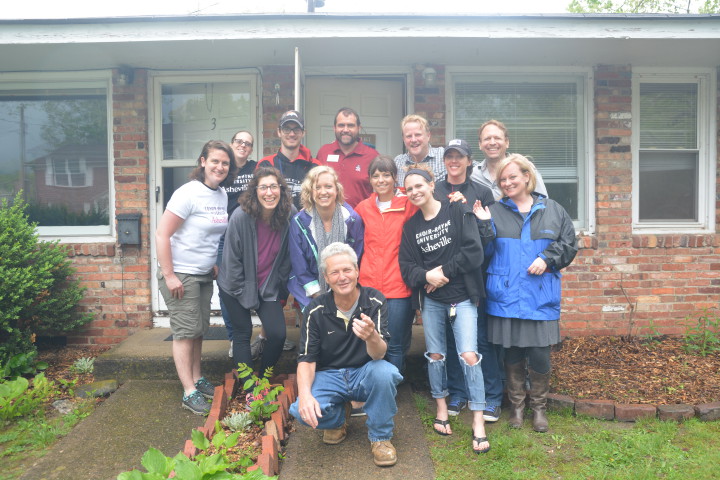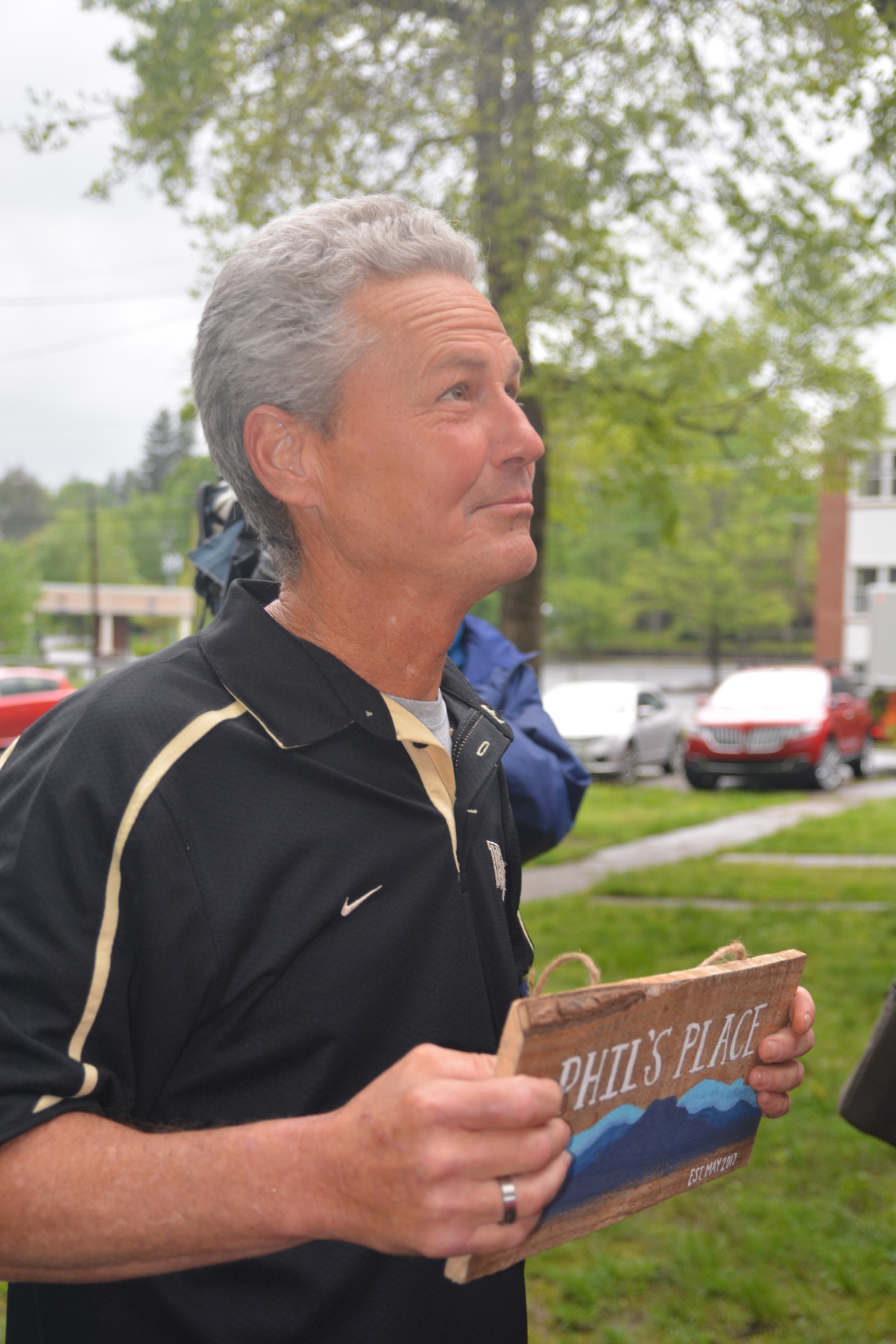As a steady rain falls outside, Philip Caruso stands in the bedroom of his new apartment. “I don’t care [that it’s raining],” he says. “For the first time in decades, I’m not outside under a pine tree somewhere.”
Caruso is a U.S. Marine veteran who saw combat in Beirut during the 1980s. His life was never the same afterward. For most of his adult life, Caruso, 55, has lived under bridges and in wooded areas.
Now, though, he has a place to call home, thanks to Homeward Bound, the YMCA and Lenoir-Rhyne University of Asheville.
Homeward Bound, the Asheville-based nonprofit that offers services to people experiencing homelessness, was one of the earliest local advocates of the housing-first concept, which says people need a roof over their heads before they receive other social services.
Ben Fehsenfeld, director of communications and annual giving for Homeward Bound, has found that it’s easier to provide services to people who are housed.
Under what’s called the transitional model of caring for people who are homeless, some services are offered or put in place before the person has a place to live, and in about 70 percent of those cases, once housed, the individuals wind up losing their home.
“In the housing-first model, there’s a success rate of about 83 percent nationally,” Fehsenfeld says. “Homeward Bound’s success rate is 89 percent.”
When people have a place to call home, their self-esteem rises and they begin to believe they deserve to have a roof over their heads, Fehsenfeld says. He has found that they then work harder to maintain their housed status, which tends to make the caseworker’s efforts more effective.
“I believe everyone has the right to live inside,” Fehsenfeld says. But there are other challenges to meet, he notes.
Philip’s home, like all Homeward Bound housing, is a rental. Most of the organization’s housing is owned by private landlords.
“We provide rental assistance and case-management assistance for a period of time,” explained Jim Lowder, director of resource development for Homeward Bound. In the case of veterans with some income, such as for disability, 30 percent of the person’s income is applied to the rent, with Homeward Bound covering the rest. “We’d anticipate that [arrangement] will be for about nine months, and hope that by then Philip will be independent. That [period] can be extended sometimes,” Lowder said. The goal is for Homeward Bound’s client to become independent and continue living in the same unit — renting directly from landlord.
But to offer someone an apartment with no furniture is little better than leaving them outdoors, says Ashley Campbell, program director for Homeward Bound’s Welcome Home program.
“We partner with other nonprofits and faith-based groups to furnish these homes,” she says. Looking around at the furnishings in Caruso’s new home, she adds, “Everything here was gathered by the people at Lenoir-Rhyne.”
Caruso has little to say about his years as a homeless man; instead, he says he wants to focus on his new life.
“I withdrew from society,” he says. “I didn’t want any part of anybody.”

But he came to realize that he didn’t want to die alone in the woods, so when he was offered help by an attorney with Asheville’s Homeless Initiative, he took it. Less than three months later, he stands in his new apartment, listening to the rain outside.
“I can think about the future now,” he says as a team of volunteers carries in his new furniture and a couple weeks’ worth of food.
He jokes about inviting company over to his apartment and graciously serving oolong tea and homemade fish tacos. But until moments before this joke, Caruso had only his backpack and a bottle of hot sauce to his name, he observes.
“Wow, I have something to pour my hot sauce on,” he says as volunteers from the YMCA’s nutrition program stock his refrigerator and food cupboard.
Michael Dempsey, dean and director of Lenoir-Rhyne’s Center for Graduate Studies in Asheville, helps to carry in a brand-new red recliner for Caruso’s living room. As others help him remove the plastic shrink wrap, Dempsey looks at the color.
“That’s a real Lenoir-Rhyne red,” he muses. “I thought about slapping our logo on it, but I guess that would be a bit too much.”
Caruso is too excited to try out the chair, the tan leather love seat or the memory foam mattress on his new bed.
“All I know is that I’m not homeless anymore, and right now, that’s all that matters,” he says. “I would tell any veteran who needs the kind of help I’ve gotten that it’s there for them too. There are resources available out there and people who care.”
Caruso admitted to having a difficult time describing his emotions. “There’s a little nausea — in a good way,” he says as he puts down a doormat by his front door. “I’m grateful, I’m optimistic.”
His eyes well with tears as Lauren Bradley of Lenoir-Rhyne presents him with a hand-painted sign with the words, “Phil’s place.”
After the dozen volunteers pose for the obligatory move-in photo, Caruso walks toward his front door and turns back to face everyone, a smile growing across his face.
“I’ve been dying to say this for a long time,” he says. “Hey, you kids! Get off MY grass!”




Wow…. great story…. super positive…. thanks to everyone who helped this fellow. Wow again.
30 years for a veteran. 30 minutes for an illegal.